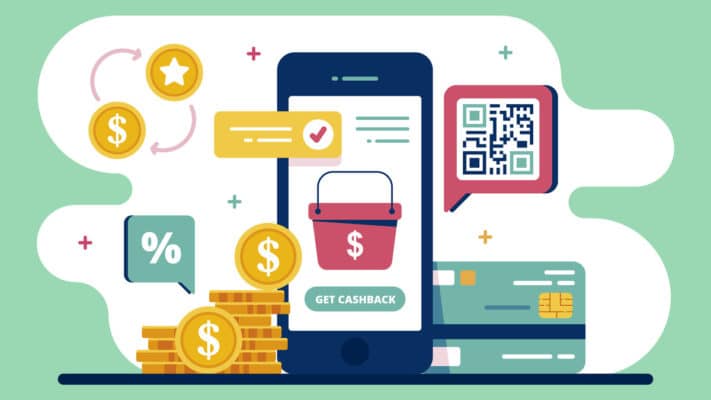Digital Wallet in Ecommerce: A Complete Guide to Seamless Transactions

The global internet user base is growing astonishingly, leading to a significant shift in consumer payment habits. Traditional cash payments are becoming obsolete as digital transactions gain traction.
The digital wallet in eCommerce has emerged as a highly sought-after solution in the eCommerce market. Users increasingly favor e-wallet transactions over physical cash, showcasing the immense potential of this digital payment method in modern commerce.
In its fifth session, the Annual Worldpay Global Payment Report expected digital wallets to represent half of the global eCommerce sales by the end of this year.
Benefits of Digital Wallet in Ecommerce Stores
- Easy and Quick Setup: A digital wallet in eCommerce can be set up within minutes, providing a user-friendly experience.
- Enhanced Security: It encrypts users’ account numbers and personal information, ensuring a safe and secure payment method.
- Instant Transactions and Improved Accessibility: E-wallet payments are fast and almost instantaneous, requiring a simple user phone wave. It also provides more convenience by eliminating the need to carry physical cash or numerous cards.
- Seamless Account Connectivity: E-wallets allow users to connect and manage multiple accounts, such as credit cards, within a single platform.
- Versatile Card Options: Different types of cards, including credit and debit cards, can be stored and used within e-wallets, offering flexibility to users.
- Wide Acceptance: E-wallets are accepted at various retailers and online stores, making them a widely recognized payment option.
- Transaction Authorization: Each payment in an e-wallet requires user authorization, ensuring secure and protected transactions.
Key Players of the Digital Wallet in Ecommerce Market in India
Some of the prominent key players in the digital wallet in the eCommerce market that are driving innovation and shaping the landscape of digital payments in India-
- PhonePe: Founded by Sameer and Rahul in 2015, PhonePe is a popular payment application in India. It supports transactions in 11 languages across the country. Apart from payments, PhonePe offers additional services like mutual funds, digital gold, and insurance, enabling users to withdraw money from PhonePe merchants.
- Google Pay (Tez Pay): Developed by Google Inc. in 2017, Google Pay is a widely recognized payment application available in 42 countries worldwide. With its increasing global reach, Google Pay supports transactions in 9 languages. Notably, Google Pay provides a unique “Toggle” feature that ensures the security of your transaction history, even from Google itself.
- Paytm: Founded in 2010 by Mr. Vijay Sharma, Paytm is a leading digital payment platform. Paytm introduced various digital products such as wallets, mobile payments, online shopping, and the Paytm sound box in 2014. In 2015, Paytm obtained a license from RBI and launched its bank, further expanding its services.
- BHIM (Bharat Interface for Money): Developed by NPCI, BHIM is a dedicated UPI (Unified Payments Interface) transaction app. Launched in December 2016, BHIM supports transactions in 20 languages, making it accessible to many Indian users. However, it has faced increasing competition from other payment applications.
- Amazon Pay: Amazon Pay is Amazon’s payment solution available in 18 countries. With a significant presence in India, Amazon Pay boasts over 50 million registered users nationwide.
Security Measures and Fraud Prevention in the Digital Wallet in Ecommerce

As eCommerce and m-commerce gain momentum, businesses increasingly embrace mobile payments, particularly accelerated by the COVID-19 pandemic. Simultaneously, users are gravitating towards the convenience offered by mobile payments.
However, addressing the security challenges associated with these payment methods is crucial to ensure safe and trustworthy transactions.
Several security threats exist, including snooping, tampering, pin-guessing attacks, and cloning.
- Snooping: To mitigate snooping risks, users must adhere to the security rules and regulations manual. However, many non-technical users ignore the security features manual, leaving them vulnerable to attacks. By promoting user awareness through educational content and user-friendly guides, individuals can better understand the importance of following security guidelines, thereby minimizing the risk of data misuse.
- Tampering: To prevent tampering, robust measures should be implemented to protect network traffic and ensure data integrity during transmission. Employing secure encryption protocols, such as SSL (Secure Sockets Layer) or TLS (Transport Layer Security), strengthens data protection against malicious alterations.
- Pin-Guessing Attacks: Pin-guessing attacks occur when malicious users make multiple attempts using incorrect digits and verification codes. By implementing robust authentication mechanisms, including multifactor authentication and strong PIN policies, security can be fortified to a greater extent.
- Cloning: Utilizing technologies that make cloning mobile devices or cards difficult adds an extra layer of protection. Digital wallet providers can enhance security and protect account holders’ sensitive information by implementing advanced anti-cloning measures and regularly updating security protocols.
Cryptocurrency-based Ecommerce Online Payment

Cryptocurrency has revolutionized global transactions, making them more convenient, cost-effective, and efficient. To engage in cryptocurrency transactions, individuals need a secure digital wallet in eCommerce that enables the storage and transfer of digital currencies.
Here’s a step-by-step guide on sending and receiving cryptocurrency:
- Create a digital wallet: Begin by setting up a digital wallet in eCommerce that suits your needs and preferences.
- Add the merchant’s public key: To initiate a transaction, add the merchant’s public key to your wallet.
- Enter transaction details: Within your wallet, enter the merchant’s public key and the desired amount to be sent. Point of Sale (PoS) integration can also be utilized for merchant transactions.
- Verification and transfer: The merchant’s private key will verify the public key, ensuring a secure match. Once verified, the transfer of cryptocurrency will be executed.
Benefits of using cryptocurrencies in business
- Personal data protection: Blockchain transactions offer enhanced security, minimizing the risk of cyberattacks and the exposure of financial and personal data.
- Faster processing time: Cryptocurrency transactions are nearly instantaneous, reducing waiting time between sales and payment clearance.
- Transparency: Transaction activities conducted through blockchain provide transparency, eliminating the need for extensive documentation.
- Protection from chargeback fraud: With traditional payment methods, chargeback fraud can occur, resulting in loss for merchants. However, blockchain payments mitigate this risk by ensuring immediate transactions.
Drawbacks of using cryptocurrencies in eCommerce
- Volatile market: Cryptocurrency values can fluctuate rapidly, requiring careful timing to avoid potential losses during transactions.
- Security risks: Cryptocurrency developers often lack security expertise, leading to vulnerabilities and potential loss of funds from wallets.
- Limited anonymity: While blockchain transactions and centralized services offer some privacy, they are not entirely anonymous, as user profiles can be revealed through statistical analysis.
- Scam susceptibility: Cryptocurrency transactions have been targeted by various scams, including Ponzi schemes, mining investment scams, and fraudulent wallets or exchanges. Losing access to a private key can also result in permanent loss of funds.
Individuals and businesses can make informed decisions regarding their adoption and usage by understanding the benefits and drawbacks of cryptocurrencies in eCommerce.
Future of Payments in India using Digital Wallet in Ecommerce
Since the Demonetization of 500 and 1000 denomination currencies in 2016, mobile wallet payment has emerged as a game-changing platform, using mobile technology to transform financial operations in India.
With the ability to expand customer bases and enable effortless transactions, mobile wallets offer a connected and convenient financial landscape. As security measures evolve and improve, concerns are alleviated, boosting trust and widespread adoption of mobile wallet solutions.
In today’s era dominated by smartphones, creating awareness and promoting acceptance of wallet services is of utmost importance. These services provide unmatched comfort, top-notch security, complete confidentiality, and convenient ease of use.
By embracing mobile wallets, individuals can experience seamless and uninterrupted payment processes that simplify their financial transactions.
When using the power of the WooCommerce Wallet plugin, online merchants can elevate their eCommerce operations, boost customer satisfaction, and unlock new growth opportunities.
One can simplify their payment processes, accept diverse payment methods, and enhance their customers’ online shopping experience by integrating these trusted digital wallet solutions into their eCommerce platform.
By harnessing the potential of mobile wallet technology, financial institutions in India can unlock new growth opportunities, empowering customers with a secure and efficient method for conducting financial transactions.
Stay ahead in the digital era by embracing mobile wallet solutions and providing customers with the ultimate convenience and peace of mind they deserve or better Paytm Karo!

DevDiggers
WooCommerce development services agency which provides top-notch eCommerce solutions with our premium quality WooCommerce extensions and web services. Boost your online sales with custom-built, user-friendly and high performance WooCommerce websites.

Leave a Reply